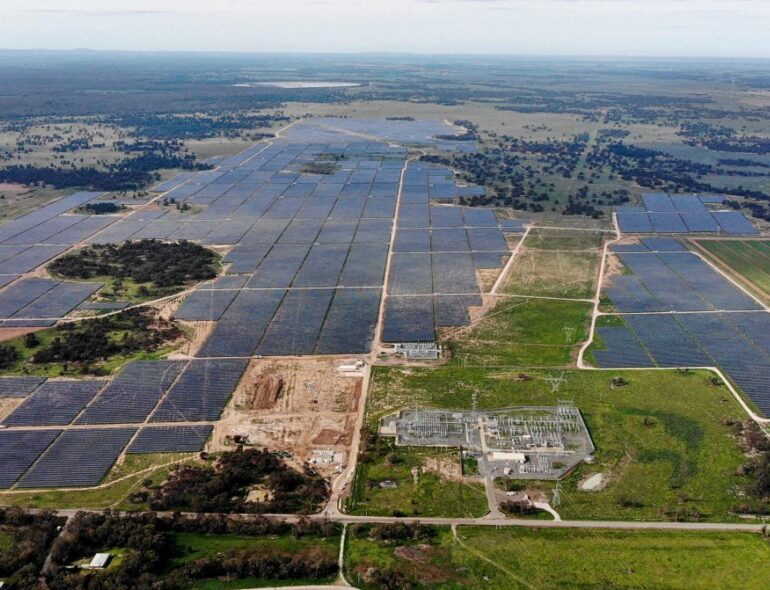
Grounded in Science: Civiltest's Role in Solar Farm Testing
Solar farms represent a pivotal shift towards renewable energy sources, offering sustainable power solutions while reducing environmental impact. Behind the scenes of these vast arrays of solar panels lies a meticulous process of testing and analysis to ensure the stability and reliability of the infrastructure.
Mark Staples, Associate Geotechnical Engineer and Engineering Coordinator at Civiltest explains the comprehensive testing procedures crucial for the success of the Darling Point Solar Farm project.
The primary focus of testing revolves around understanding the soil composition and its suitability for supporting solar infrastructure.
Generally, we head out at the beginning of each project when the client marks the area. We drill boreholes and perform in-situ testing,”said Mark. We’re not usually required to return to the site, often because they’re remote locations, so we aim to achieve everything we need in one hit. After that, we deliver any updates to the client.
For the Darling Point Solar Farm in NSW, our investigation began with borehole drilling to 6m and over 5 locations on the site,” explains Mark. This initial step provides vital insights into the soil’s characteristics, informing subsequent decisions in design and construction.
Key tests included:
Standard Penetration Test (SPT)
Offering valuable data on soil consistency essential for structural design. Additionally, Thermal Resistivity testing evaluated the soil’s ability to transfer heat, which is crucial for cabling systems beneath the panels.
Mark emphasised the importance of adaptability, stating, “The testing performed is very much dependent on each client’s testing requirements and the site’s needs.
Aggressivity Testing
Performed to ensure the durability of materials against harmful environments, which is vital for the longevity of solar farm components.
Electrical Resistivity
Testing further refined cable design considerations, optimising performance and reliability in varying soil conditions. While Atterberg Limits Testing offered insights into soil types, essential for informed decision-making throughout the project lifecycle.
Mark reflects on the rewarding aspect of their work, emphasising their dedication to quick turnaround times without compromising on quality.
"We aim to provide a quick turnaround while ensuring we meet all requirements and testing standards,” he stated. "We also strive to be as flexible as possible to accommodate our clients at short notice."
This dedication, flexibility, and industry expertise distinguish Civiltest as a trusted partner in the renewable energy sector.
Image Courtesy: Edify Energy